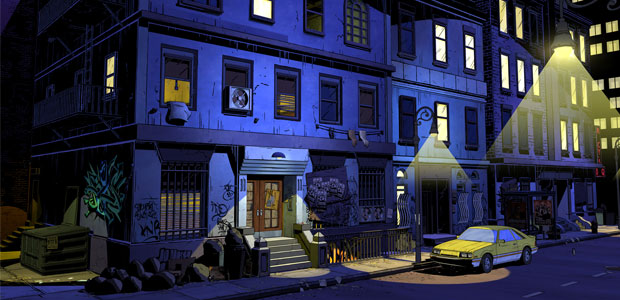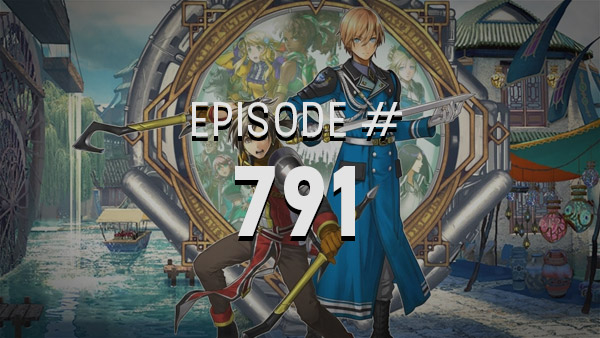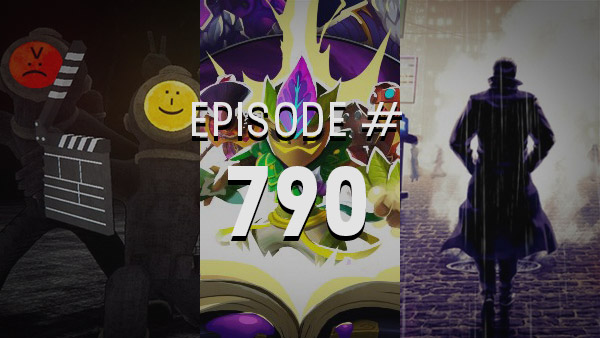Your login information returned multiple users. Please select the user you would like to log in as and re-type in your password.


This is a phenomenon that really became more vocal with Telltale's The Walking Dead. With the release and critical reception of Gone Home, however, these voices have become louder and more numerous. These games have been called “walking simulators”, “interactive movies”, and something that “isn't actually a game”. All of this does raise a very interesting question: what exactly is a video game? If Dear Esther, Gone Home, and The Wolf Among Us aren't games, then what exactly are these sudden, new guidelines that people like referencing?
First, I'd like to dispel the “interactive movie” argument that gets flung around quite a bit. Apparently, these people seem to forget that most video games follow a linear path. The same events will always occur to the same characters no matter how many times a game gets replayed. Sure, there might be slight changes like some dude falling in a different spot or a bit of blood splatter being on a different surface, but is that shallow detail really the defining point between game and movie? If everything always happens in a linear fashion to the same characters in the same locations with no player influence over the outcome, is that not an “interactive movie”? This argument doesn't work because most video games would easily fit into this definition.
Let's be honest, a game that has a major focus on narrative does not change the fact it is a video game. Yes, even Dear Esther, a game where all you do is walk around while someone narrates, is a video game. If you can interact with the characters or environments in some way through your controller/mouse and keyboard, then it is a video game. Sure, the degree of interactivity will vary wildly, but games don't have some strict guideline for how much player input is required. There isn't some grand overlord carefully monitoring each and every project to ensure the player has a high degree of control. Some games give the player large amounts of freedom, others will not. This does not change the definition of what is and is not a game.

(Minor spoilers to Gone Home in this paragraph) So now we come to the real heart of the issue. The simple truth is that people will look at games like Gone Home or The Walking Dead, see the huge critical acclaim, and then wonder “What's the big deal?” They play these games and all the hype comes crashing down on them. They were expecting more and, perhaps, this leads to a feeling of disappointment. Some people can appreciate these styles of games for what they are, whether or not they enjoyed them, while others will feel cheated. They'll spend $20 on Gone Home and feel frustrated that “all they do” is walk around a house and read notes. They wanted something “gamey” to happen. They wanted to find a ghost or a monster of some kind. They wanted that sense of excitement or fear of being chased by a lurking monstrosity, but all they got was an empty house.
Gamers have become so focused on the supernatural, the surreal, and the ability to shoot some fools in Calladooty that they'll dismiss anything else. They seem to forget that some of the more memorable movies, shows, or books are actually about normal human beings dealing with very human issues. That's really the motivation behind this argument. Some people may genuinely feel as if something like Gone Home isn't a game, but most others taking up that call will only do so simply because they didn't like it. In the age of snarky internet critics, this is the only way some people can express their dislike of a product. Rather than shrug their shoulders and move on or bring genuine criticism, they'll fly to the keyboard and type up some sarcastic quip about walking sims and sit there with a smug grin. That's the kind of culture this has become and, frankly, it needs to stop.




Comments
10 years, 6 months ago
It saddens me when someone says something isn't a game, but I will always defend their right not like it. Just the same way if someone bought Catherine expecting interactive novel and got a block game. This whole "is it a game argument" feels like it started from a lot of people feeling disappointed from a purchase.
10 years, 6 months ago
I've been thinking about this issue a lot recently. I think some of it stems from the fact that a lot of modern AAA gaming, with its heavy emphasis on multiplayer modes and fast-paced action-packed campaigns, is visceral and competitive, and games like Gone Home, Proteus and Dear Esther are neither of those things. They're a foreign experience to people who believe that the sole purpose of a game is to win it, which is also probably why you get a lot of "I can't believe I payed $15 for a game that only takes 45 minutes to beat!", even though that experience might be twice as cerebral and engaging as many 25-hour long games.
I'm not saying these games are above criticism, and what mechanics they do offer are often very shallow, but dismissing them as 'not games' strikes me as reactionary hyperbole from people who have gotten used to games following a narrow range of specific archetypes.
10 years, 6 months ago
I don't think people are ready to handle video games as a new form of media yet; people are still to reliant on comparing them to media we already have, like movies, which discredits video games. Additionally, video games are such a fascinating platform to work with because they can take many forms... but this is troublesome, because one can not compare a visual novel to a FPS, but people will try to because it all falls under the umbrella of "video game".
We are, as humans, so trained to categorize and label things that when two completely different things are put under the same umbrella, we immediately try to compare them. Video games are such a new form, still in infancy, with such broad experiences and range of potential narratives and interactivity, that I fully expect the umbrella to branch or break or for people to adapt and realize that just because things fall under the same umbrella, they are not necessarily comparable.
10 years, 6 months ago
Apologies in advance for the all-caps to come, but I can't use italics/bold here.
The best counter I've heard to the "these aren't games" argument, is to compare them to old point-and-click adventures. While those games still exist, you could argue that these "walking simulators" are a modern extension (even an improvement) of that formula.
If you're looking at video games as a platform for delivering an interactive narrative, the visuals and perspective that these newer games (such as Dear Esther and The Walking Dead) provide are miles ahead of that older format. That these advancements would not only make them LESS of a game, but also somehow more of a MOVIE, is what confuses me.
I can understand the perception of a lack of "game-ness" that comes from the way that these games allow interaction with them, however. I think the biggest problem people have with these games isn't that they AREN'T games, but that they aren't able to control the game in a way that they find satisfying.
A perceived lack of player agency is what produces most of these complaints. The people complaining about a lack of a game here, are the same people complaining about the lack of impact their choices made in the Mass Effect ending(s). They want to the affect of their presence in the world, and feel that they've had a hand in shaping events. Even if a game provides a branching story line and asks the player which way to turn at every crossroads, providing that direction alone can result in the player feeling detached.
Your article addressed the point I've made in the previous paragraph, but I feel that's the place that most people are coming from when there's not enough game for them. Jumping to the conclusion that it's not a game in the first place is certainly a faulty argument, but in the end, it's the result of somebody playing a game that didn't meet their expectations. Those expectations are clearly where the change needs to be made, and part of that is just the willingness to accept these interaction-lite titles as they are.
10 years, 6 months ago
I suspect that the real problem people had with "Gone Home" was that it was a pretentious mess, not that it was so much a walking simulator. "Dear Esther" and "Wolves" had interesting, involving stories, and "Esther" had some striking visuals, but "Gone" suffered from sub standard writing that was received better than it ought to have been. The fact that it has a very low user rating on Metacritic isn't a sign of some internet bombing campaign, it's a sign that people thought the game was rubbish.
Yet others keep trying to defend it as some bastion of new and exciting storytelling that it simply isn't. This article is attempting to straw-man negative reviews of this game by saying people are unsatisfied by it's lack of video-gamey stuff, but if you actually read the reviews people have left, you'll notice that while people will mention that it's essentially "Slender"'s note reading gameplay with no jump scares, it's usually an afterthought to pointing out the weakness of the story.